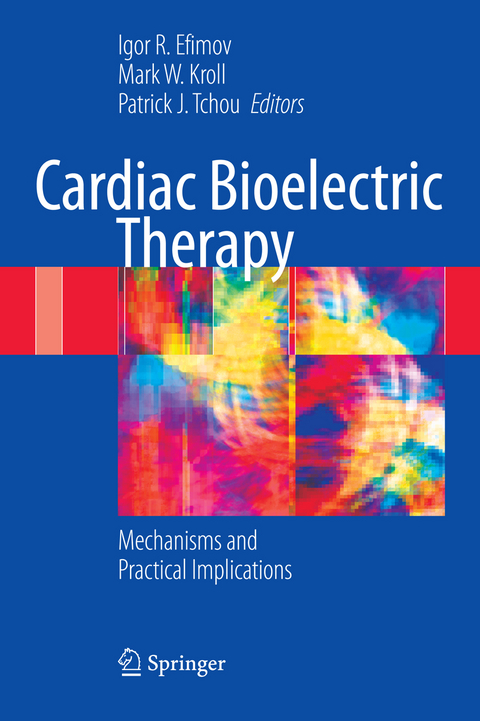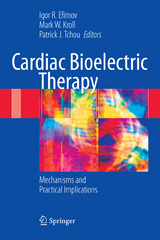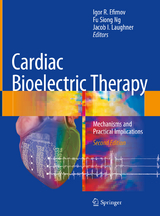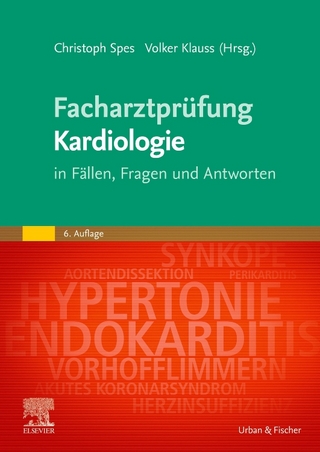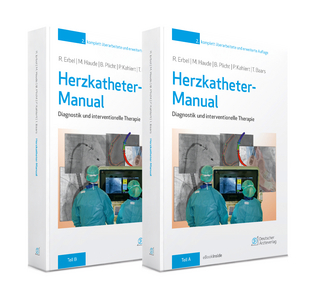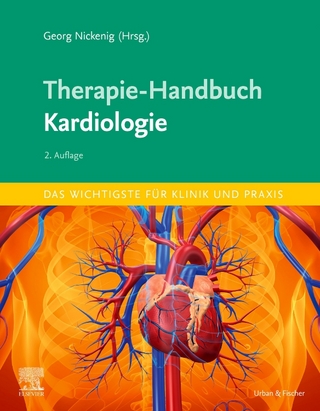Cardiac Bioelectric Therapy
Springer-Verlag New York Inc.
978-0-387-79402-0 (ISBN)
- Titel erscheint in neuer Auflage
- Artikel merken
The purpose of this book is to present a uniform thematic collection of reviews written by the leading basic and applied scientists working in basic bioengineering research laboratories, who have contributed to the development of current understanding of the fundamental mechanisms of pacing and electrophysiology, and who are at the leading edge of further developments in electrotherapy.
The book will start from the historic overview of the subject, including the development of the pacemaker and defibrillator, evolution of theories of cardiac arrhythmias and experimental methods used in the field over the centuries. Leading experts in the field will write these chapters. The second part of the book will focus on rigorous treatment of the fundamental theory of interaction between electric field and cardiac cell, tissue, and organ. Chapters will be written by top notch scientists, who made critically important contributions to the development of these theories. Part 3 will provide summary of several decades of research involving electrode recordings and multielectrode mapping of ventricular fibrillation and defibrillation in humans and animal models of arrhythmias. Part 4 will present new insights into defibrillation gained due to the advent of optical imaging technology, which permitted to map defibrillation without overwhelming shock-induced artifacts present in electrode recordings. Part 5 will provide rigorous overview of the methodologies, which made research of physiological and engineering aspects of electrotherapy possible. And finally, part 6 will present possible future of implantable devices and electrotherapy in the treatment of cardiac rhythm disorders.
History.- History of Cardiac Pacing.- History of Defibrillation.- Ventricular Fibrillation: A Historical Perspective.- Theory of Electric Stimulation and Defibrillation.- The Bidomain Theory of Pacing.- Bidomain Model of Defibrillation.- The Generalized Activating Function.- Theory of Electroporation.- Electrode Mapping of Defibrillation.- Critical Points and the Upper Limit of Vulnerability for Defibrillation.- The Role of Shock-Induced Nonregenerative Depolarizations in Ventricular Fibrillation and Defibrillation: The Graded Response Hypothesis.- Optical Mapping of Stimulation and Defibrillation.- Mechanisms of Isolated Cell Stimulation.- The Role of Microscopic Tissue Structure in Defibrillation.- Virtual Electrode Theory of Pacing.- The Virtual Electrode Hypothesis of Defibrillation.- Simultaneous Optical and Electrical Recordings.- Optical Mapping of Multisite Ventricular Fibrillation Synchronization.- Methodology.- The Bidomain Model of Cardiac Tissue: From Microscale to Macroscale.- Multielectrode Mapping of the Heart.- The Role of Electroporation.- Implications for Implantable Devices.- Lessons for the Clinical Implant.- Resonance and Feedback Strategies for Low-Voltage Defibrillation.- Pacing Control of Local Cardiac Dynamics.- Advanced Methods for Assessing the Stability and Control of Alternans.- The Future of the Implantable Defibrillator.- Lessons Learned from Implantable Cardioverter-Defibrillators Recordings.
| Erscheint lt. Verlag | 11.11.2008 |
|---|---|
| Zusatzinfo | 7 Tables, black and white; XXIII, 634 p. |
| Verlagsort | New York, NY |
| Sprache | englisch |
| Maße | 193 x 260 mm |
| Gewicht | 1422 g |
| Themenwelt | Medizinische Fachgebiete ► Innere Medizin ► Kardiologie / Angiologie |
| ISBN-10 | 0-387-79402-6 / 0387794026 |
| ISBN-13 | 978-0-387-79402-0 / 9780387794020 |
| Zustand | Neuware |
| Informationen gemäß Produktsicherheitsverordnung (GPSR) | |
| Haben Sie eine Frage zum Produkt? |
aus dem Bereich
